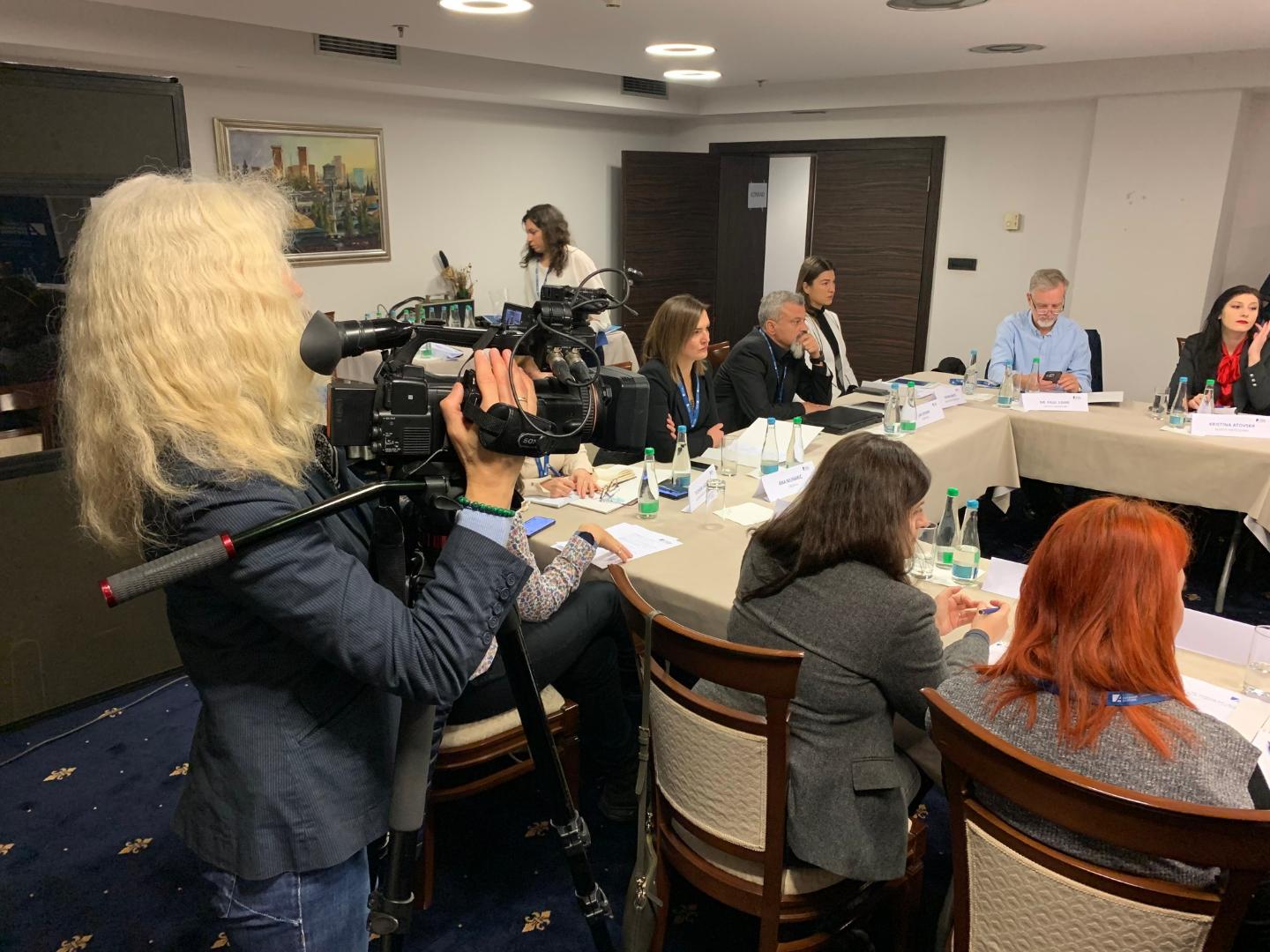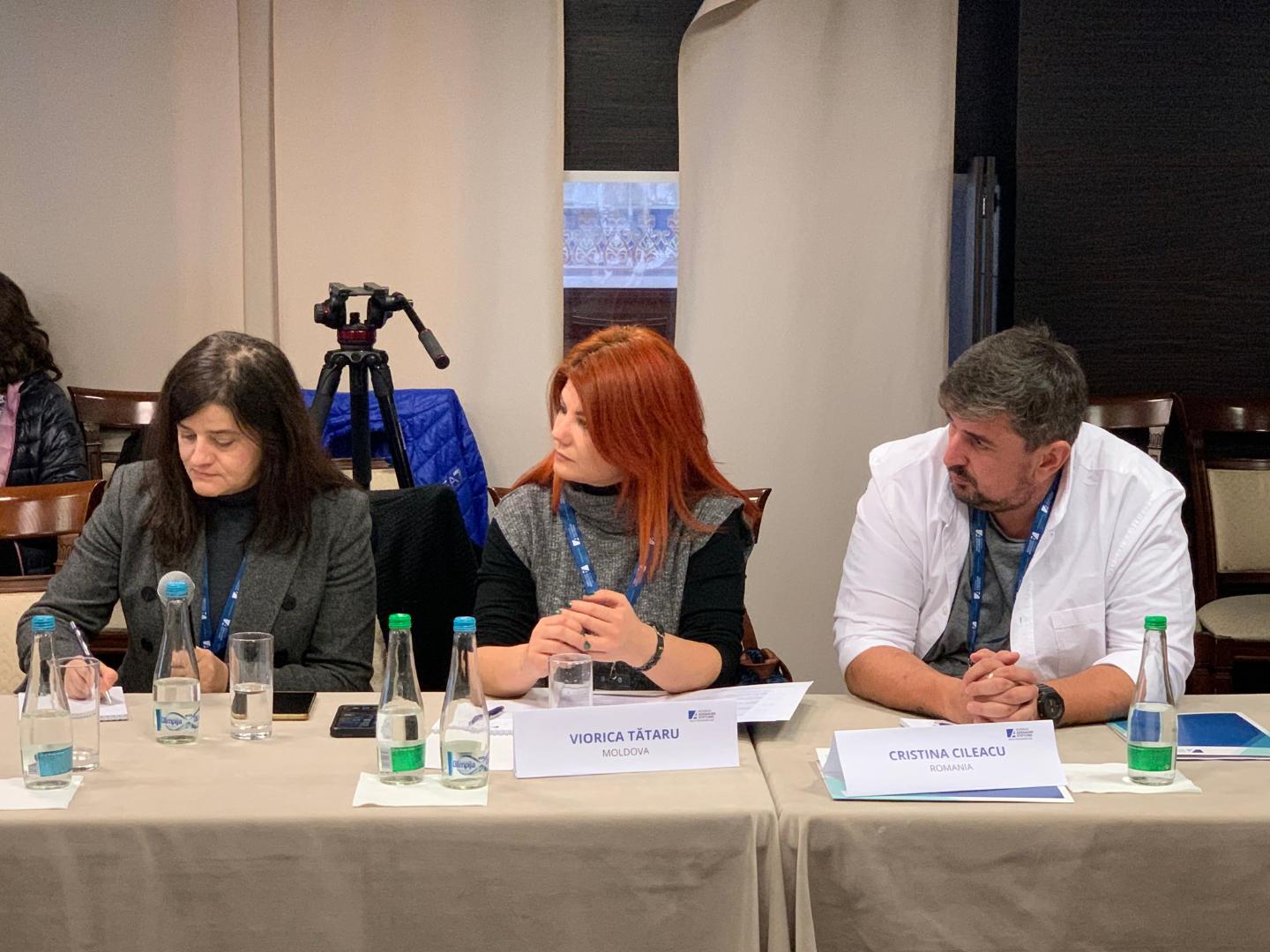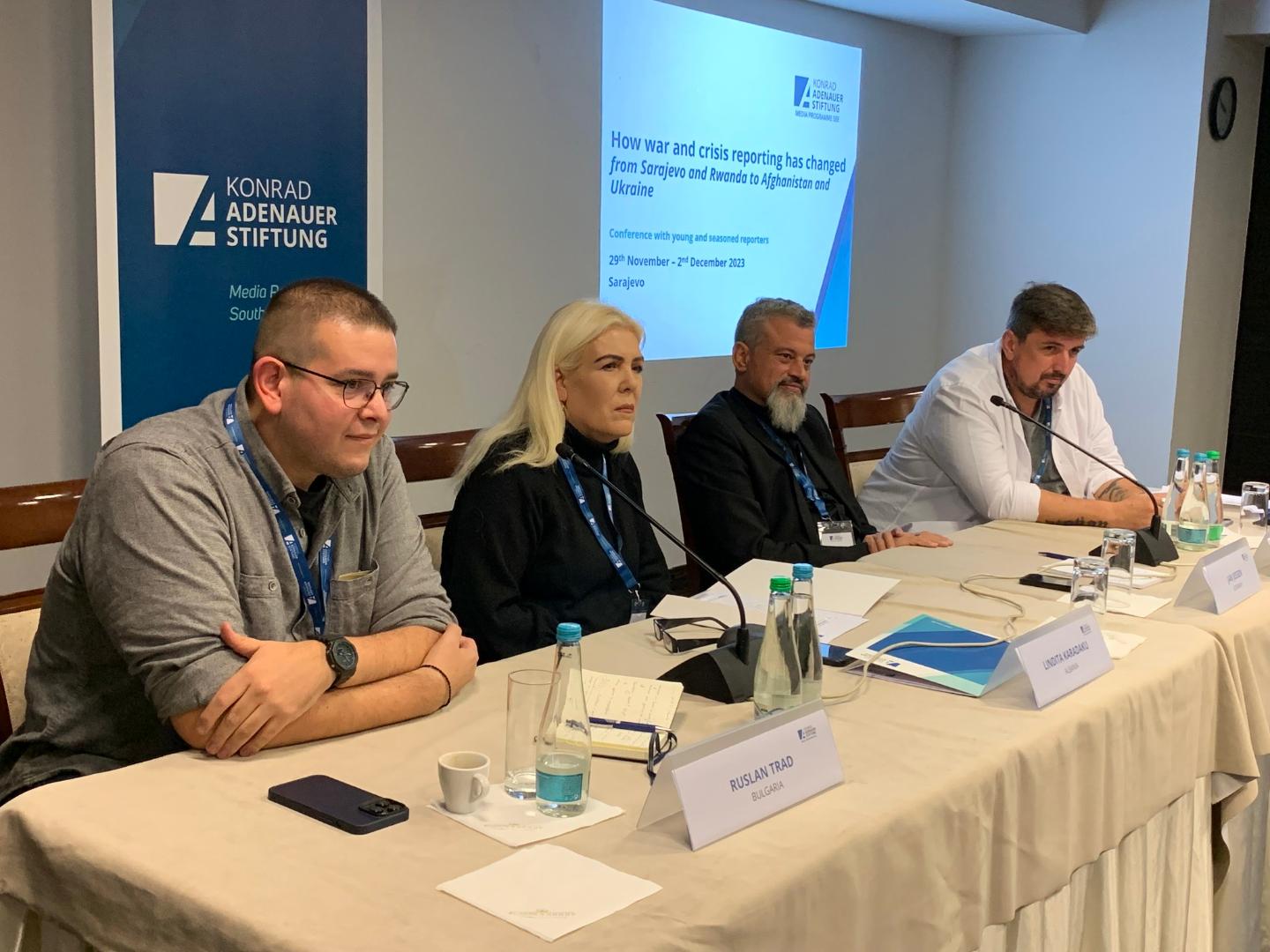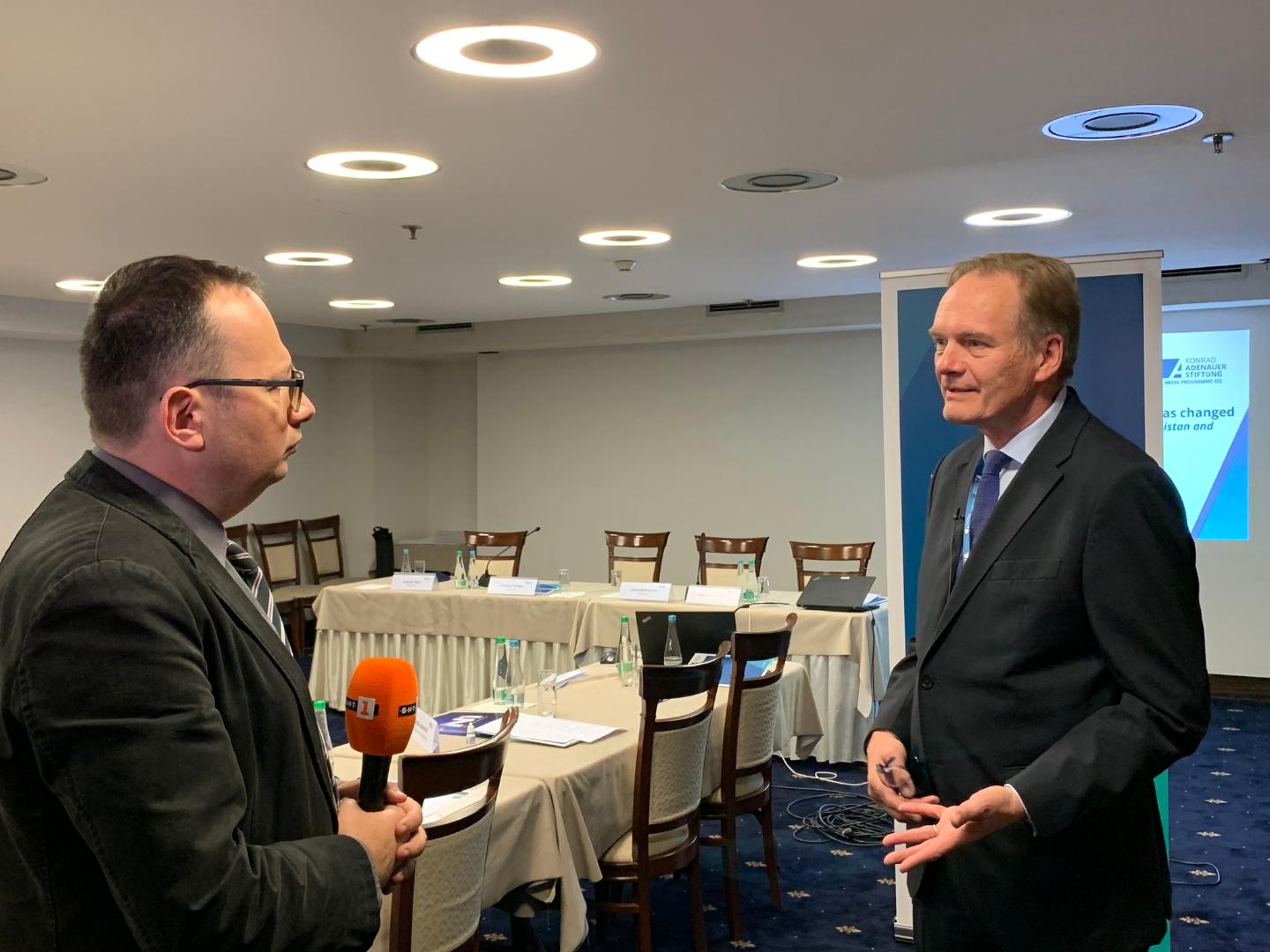The war reporting looked very different back in the 1990s – without the digital transmission on one hand and different reporting practises and working conditions on the other. It is important to track those changes and to make the connections between then and now – this would ensure ethical reporting and improvement in the journalistic profession. With those remarks and introduction of all participants, the conference was opened by the new director of the KAS Media Programme South East Europe, Christoph Plate.
Jan Jessen, Chief Reporter of the Neue Ruhr Zeitung (Germany), spoke about the preparation process before reporting on the ground. He gave practical advices on the needed equipment and safety measures that can be organised in advance. He added that knowing the background of the country and the ongoing conflict are of high value. „War is always changing the life of people in a drastic way”, he reminded. In this extreme situation it is twice as important to stay natural and tell the truth, but also to preserve sanity and have a psychological debriefing. Some of the freelancers in the round shared that the decision to make field work or documentaries on their own led to personal debt. Simon Allison, Editor-in-Chief of The Continent in Johannesburg (South Africa), shared innovative ways to involve the audience, having in mind the often underresourced and understaffed newsroom. “We have to (re)think much more then before”, he said, giving examples how to adjust to the audience media consumption, for example changing the rhythm of publication, providing so-called “news holidays” and “news comebacks”, using social media platforms actively.
Another topic came to the fore: how to stay objective in a war? The reality of the field work is different from the planning itself and always brings surprises. There is the risk to weaponise the emotions of the victims or to twist the reporting through personal feelings. Nevertheless, the participants agreed that it is acceptable to write about the pain of the people they encounter. It was also highlighted that journalists coming from abroad are expected to report soberly and neutrally but are in some cases stamped as “parachute journalists”, not knowing the local context. On the other hand, the domestic journalists could easily project their pain in the reporting, constantly fearing for their families and friends. The discussion took a vivid spin by the contributions of Paul Lowe, photojournalist and lecturer at the London College of Communication (UK) and Amra Abadžić Lowe, former Reuters war correspondent and writer, who documented the siege of Sarajevo. A new perspective was introduced by the author Michela Wrong, who shared her experiences from Congo, Eritrea and Rwanda, both as journalist and researcher for her books.
Throughout the conference, the journalists actively participated in the discussions, shared their own experiences of war from different backgrounds and spoke openly about the challenges of ethical reporting on the ground.










